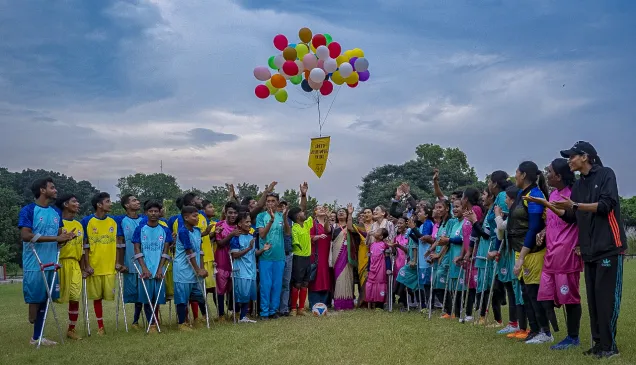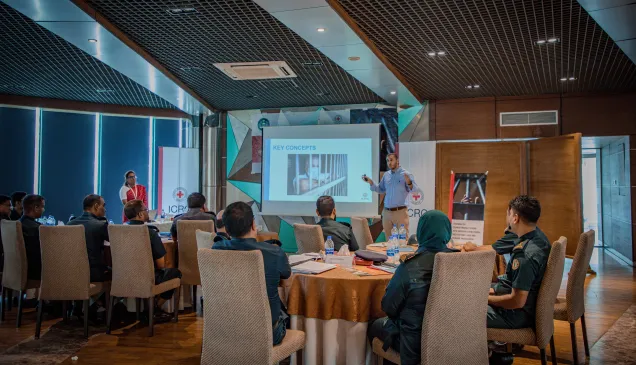Bangladesh: How Amputee Football is changing the lives of women and girls with disabilities
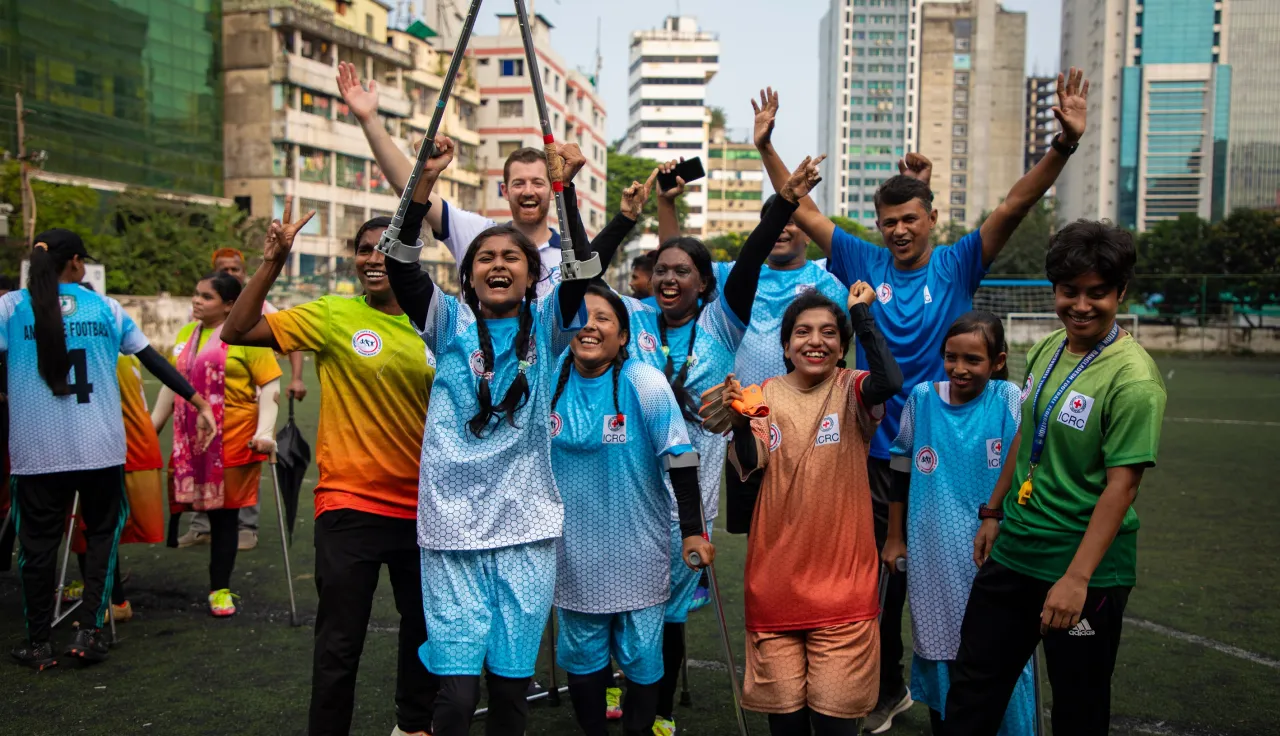
“It was my dream to become a footballer, but it was impossible with one leg,” said Sumaiya Akter, whose world turned upside down after she lost her leg in a road accident. It felt like an ending for her hopes and dreams as the challenges of daily life seemed insurmountable. However, the introduction to Amputee Football led to a new beginning for Sumaiya. The sport is now empowering her to break free from the limitations and similarly reshaping the lives of many people with amputations in Bangladesh.
Sumaiya is one of the eight women who participated in the first-ever women’s Amputee Football training camp held in Bangladesh from 6 to 10 October 2024. This initiative, led by the International Committee of the Red Cross (ICRC) in coordination with Sports for Hope and Independence (SHI), the Bangladesh Amputee Football Association (BAFA) and the World Amputee Football Federation (WAFF), is part of our broader effort to promote the inclusion of people with disabilities through sports.
The journey to empowerment
Tanjila Akter Shila, another participant who lost her leg in a gas cylinder explosion a few years ago, struggled with isolation and low self-esteem before joining the Amputee Football programme. The programme provides a powerful platform to people like Shila and Sumaiya to redefine possibilities by helping them rebuild their physical strength, mental resilience and confidence.
Today, Shila is playing football and even preparing to train others as a local coach. She hopes to inspire more people with disabilities to join the sport.
By playing, we want to inspire other girls and women like us to come forward and do something.
The camp was led by a WAFF coach from England, Harry Smith, who conducted expert training sessions for 28 amputee players (men and women) and 10 local coaches and referees. For many of the participants, this was the first time they experienced formal sports training tailored to their needs and designed to help them realize and unlock their potential.
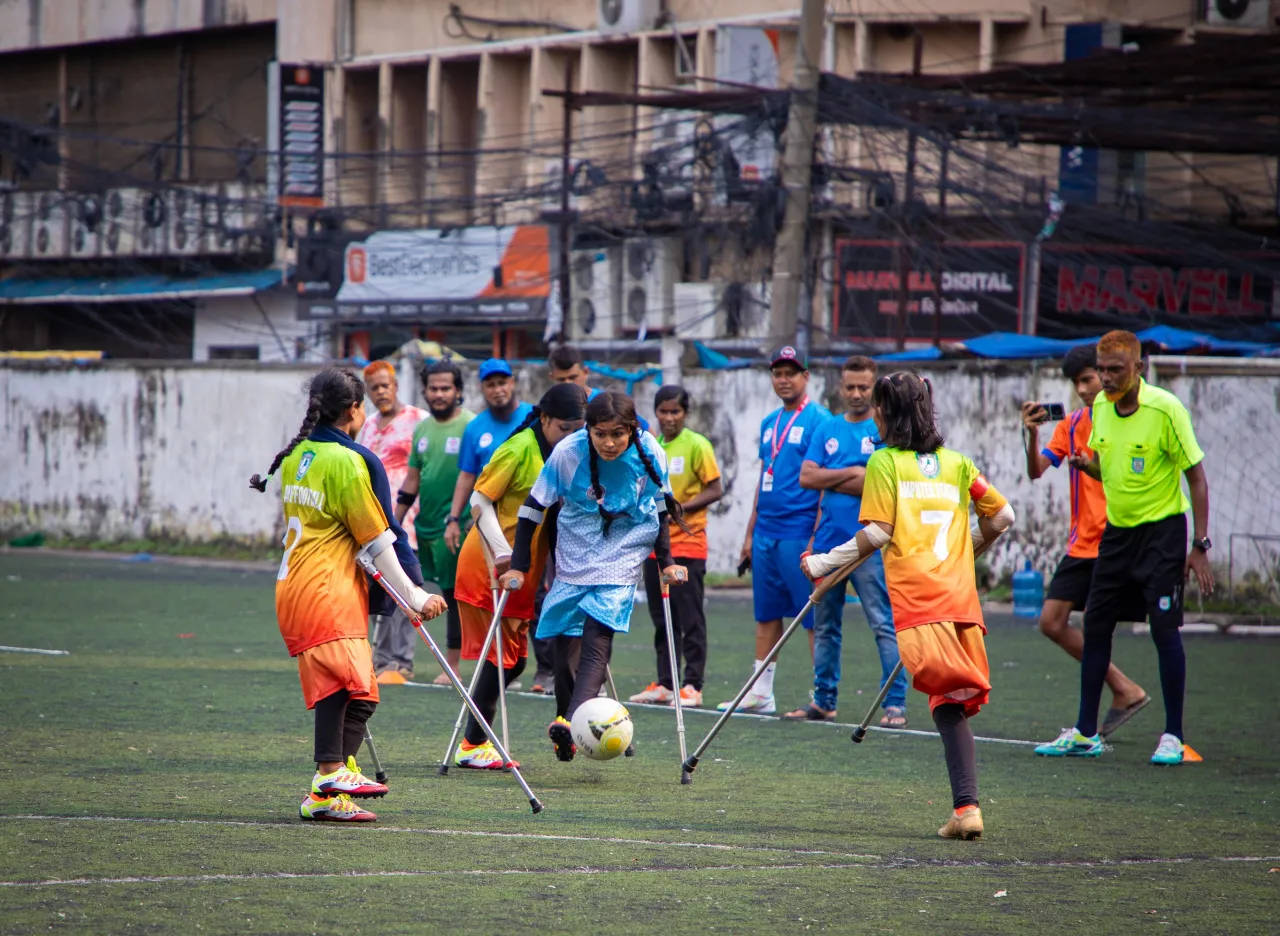
Promoting mental health care and well-being
The ICRC, along with our partners, decided to launch the women’s Amputee Football initiative in Bangladesh on this year’s World Mental Health Day. This was done to highlight and promote the importance of mental health care and well-being among the larger community of people with disabilities in the country. The initiative provides much-needed visibility and promotes inclusion in a society where disabled people are often marginalized.
“Amputee Football offers multiple benefits for players – both physical and psychological,” said Subhash Sinha, ICRC physical rehabilitation project manager and initiator of the women’s Amputee Football programme. “The sport improves balance, mobility and strength; it also fosters camaraderie and a strong sense of community. Playing in a team helps amputees focus on their abilities rather than their limitations.”
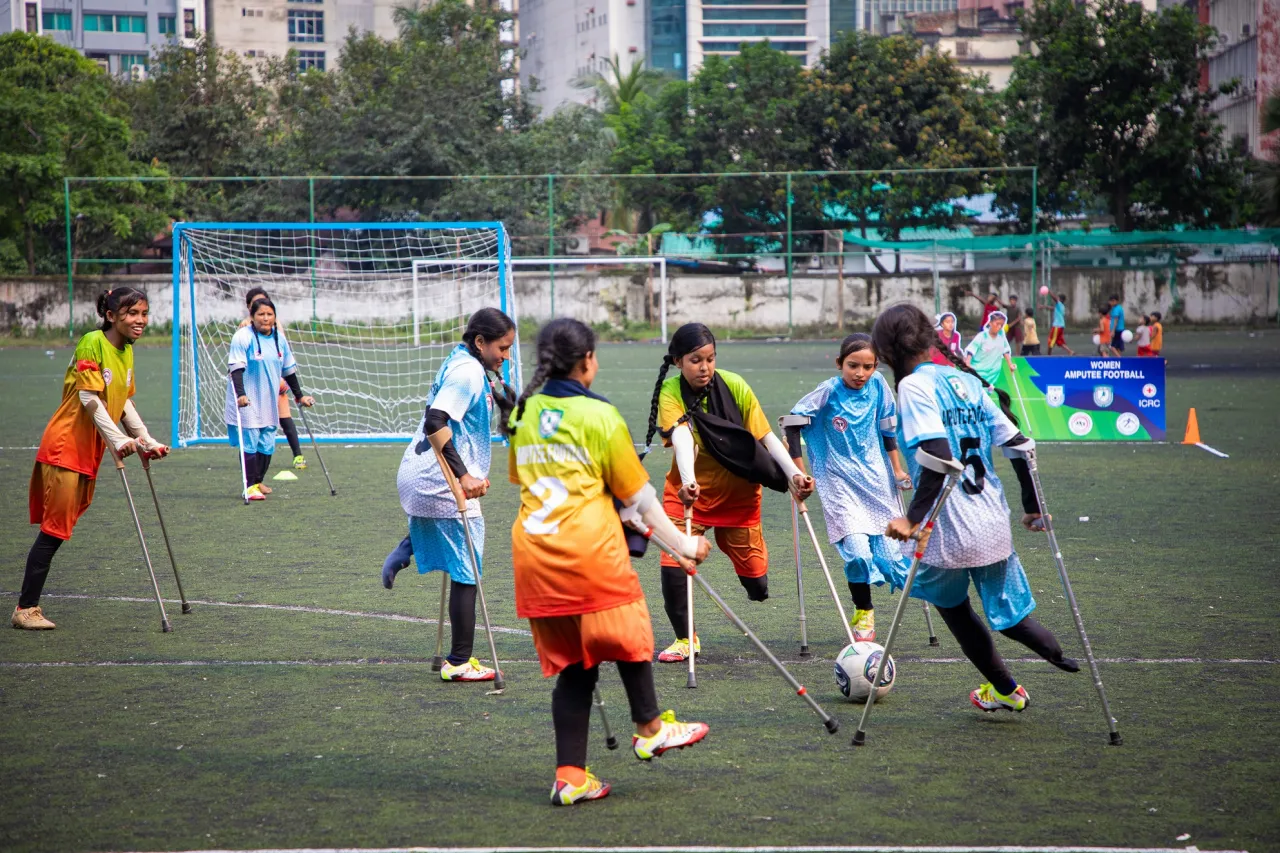
Fostering social inclusion through sports
Sports have always been a powerful tool for breaking down social barriers and negative perceptions which often deprive people with disabilities of opportunities to move forward in life and prosper. Sports, like Amputee Football, have the potential to transform lives by not only offering physical rehabilitation but also providing emotional healing. The friendships built on the field often help participants regain their sense of belonging in society.
“In our society girls miss out on many opportunities; so, as disabled girls we thought we wouldn’t be able to do anything,” said Shila. “But now we can also do many things, and we want to do something for our country.”
The exhibition match, held on 10 October, gave the players an opportunity to showcase their talent and celebrate their journey. For many, it was the first time playing in front of a crowd including family, friends, the broader community and the media. The match served as a moment of pride and inspiration for the players and everyone who attended.
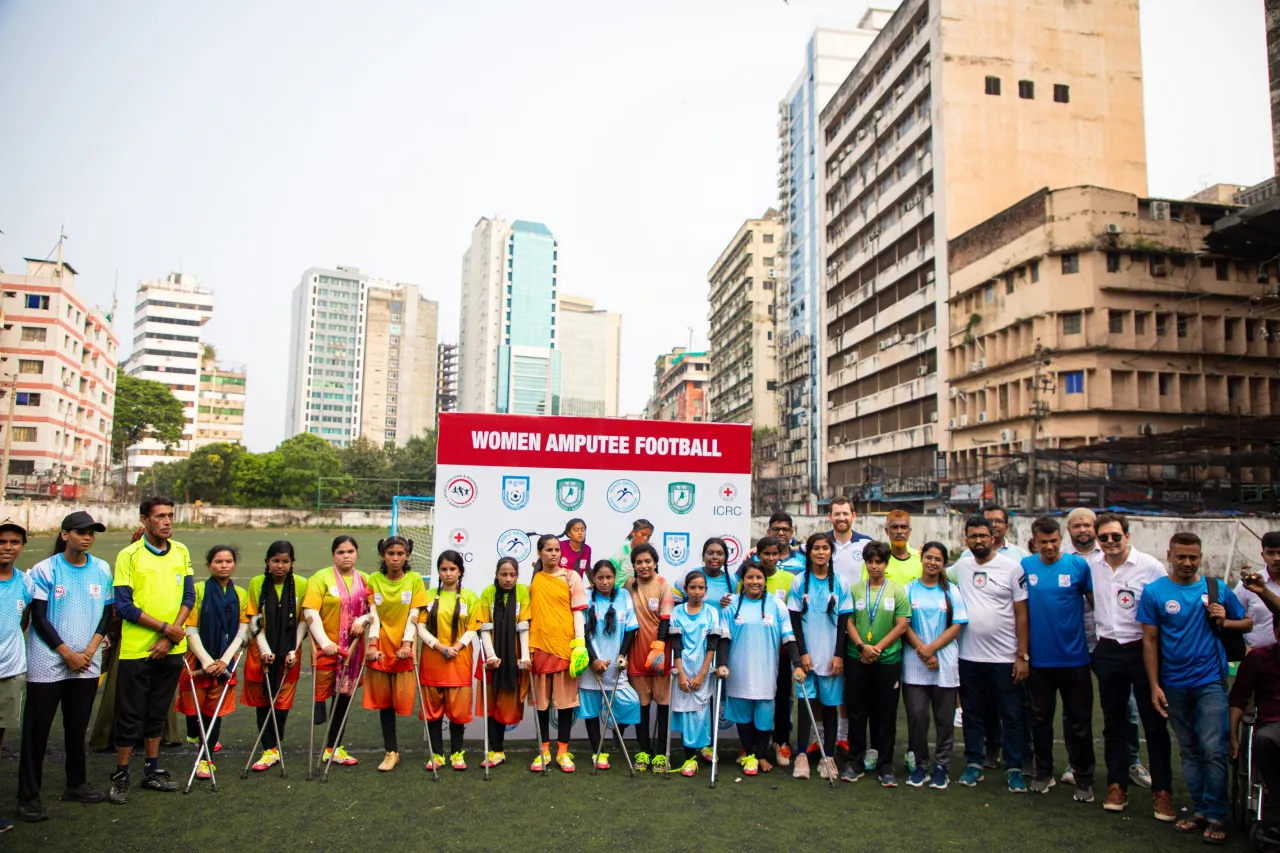
The road ahead
While the training camp and the launch of women’s Amputee Football are significant milestones, it is just the beginning of a long journey to reintegrate people with disabilities into society, providing them an opportunity to have a dignified life and play an active role in society.
The players and coaches are eager to see Amputee Football recognized as an official sport by the Bangladesh government. With more support, the programme can grow, allowing more individuals with amputations to take part and benefit from this transformative experience.
For Shila, Sumaiya and their teammates, it is more than just a game. It is a pathway to a better future. In the words of a resolute Sumaiya,
We are not just playing football, we are showing the world what we can do.
ICRC and Amputee Football
The ICRC has been promoting Amputee Football globally, working with local partners to create inclusive sports platforms, especially in the context of armed conflict and other violence. In Bangladesh, our support for Amputee Football began in 2022. With the support of our partners, SHI and BAFA, we are working to foster inclusivity for people with disabilities and empower people with amputations to lead more active, fulfilled and dignified lives.

